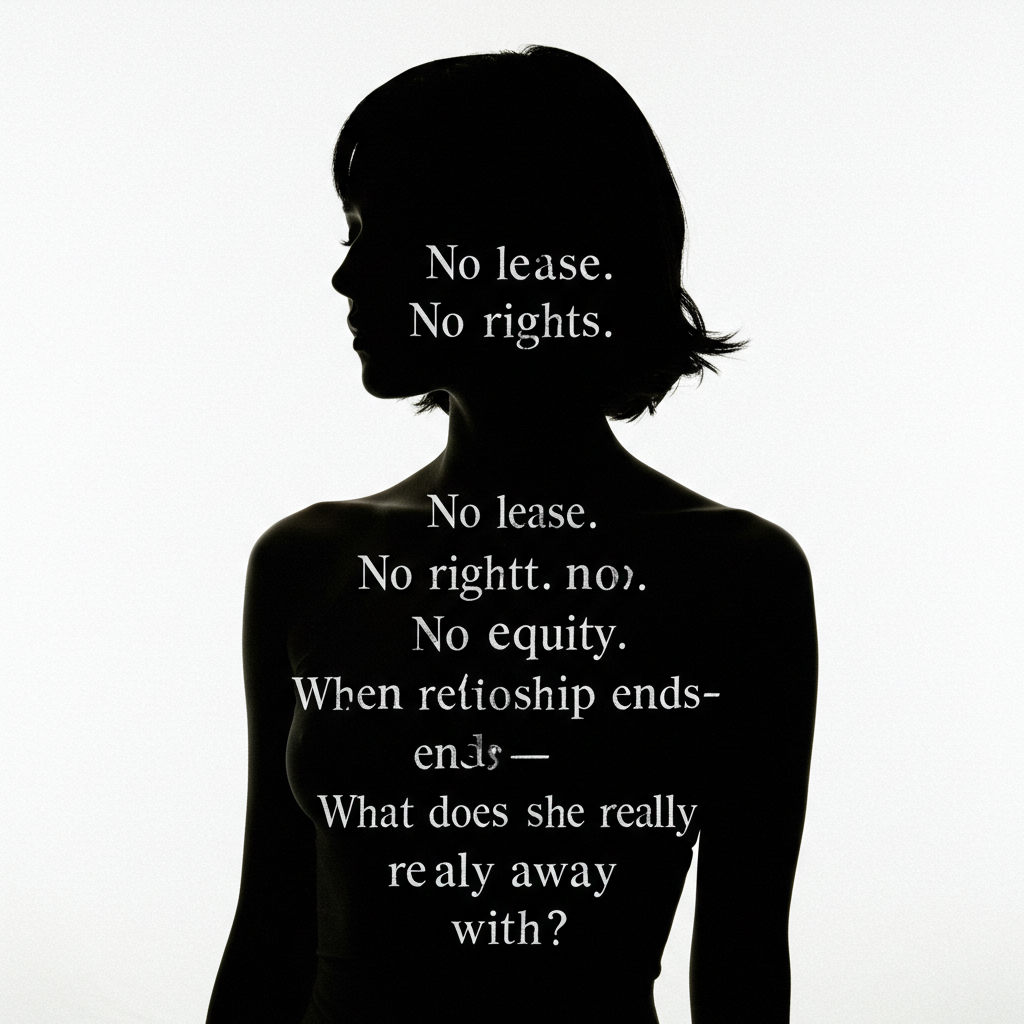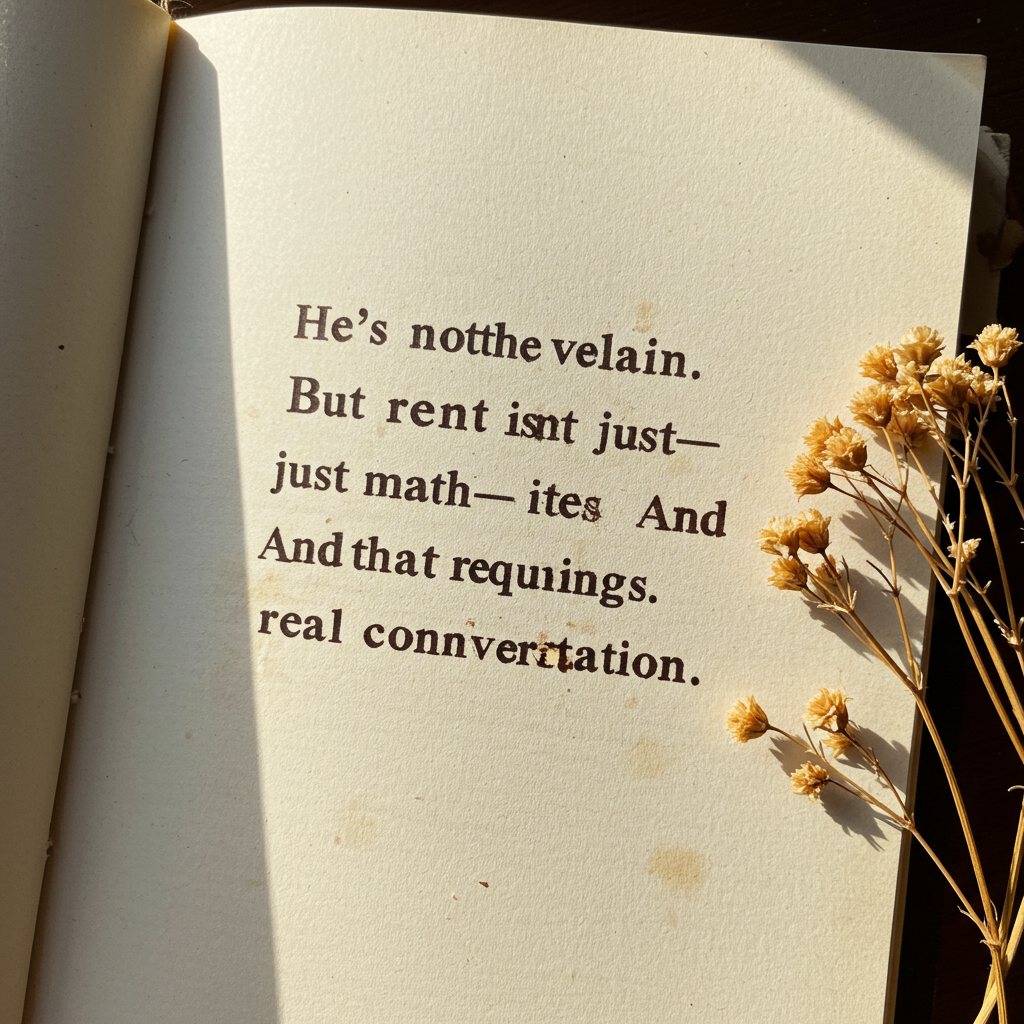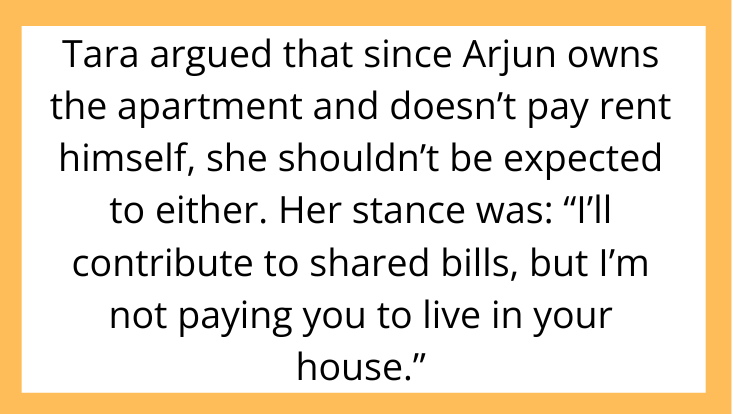AITAH for Asking My Girlfriend to Pay Half the Rent Even Though I Own the Apartment?
Living together can reveal a lot about a relationship—especially when finances get involved. In this AITAH-inspired scenario, we explore a debate that’s dividing roommates, couples, and Redditors alike: If one partner owns the home, is it fair to ask the other to pay rent?
Let’s break down the situation, the arguments, and what it really means to split costs in a shared space.
The Backstory: Love, Lease, and Real Estate

A 28-year-old man—let’s call him Arjun—posted to r/AITAH about a situation that started with love and ended in an unexpected standoff.
Two years ago, Arjun bought a condo in a major city. After a year of dating, his girlfriend Tara moved in. She was excited about living together and agreed to share utility costs and groceries, but when Arjun asked her to contribute to the rent—specifically, half of what a typical tenant might pay—things got awkward.
Tara argued that since Arjun owns the apartment and doesn’t pay rent himself, she shouldn’t be expected to either. Her stance was: “I’ll contribute to shared bills, but I’m not paying you to live in your house.”
Arjun disagreed. He felt that they were both benefiting from the space, and contributing financially would make things equal. He wasn’t charging her market value—just enough to cover taxes, maintenance, and what he called “shared living costs.”
Tensions rose, and now Arjun is wondering: AITAH for asking my girlfriend to pay rent even though I own the place?
Splitting Rent When One Partner Owns the Home

The Case for Arjun: Fairness and Shared Responsibility
From Arjun’s perspective, sharing rent isn’t about profit—it’s about equity in their living arrangement.
-
Shared Expenses: Owning a home still involves regular costs—property taxes, association fees, repairs, and mortgage payments. It’s not “free” housing just because he owns it.
-
Lifestyle Access: Tara is living in a home she didn’t invest in, located in a high-rent district. Arjun believes it’s fair that she contributes to the privilege of living there.
-
Relationship Dynamics: Arjun worries that footing the entire housing bill creates an imbalance. What if it sets a tone of financial dependency or entitlement?
He’s not treating her like a tenant—but he wants her to be a financial partner in their shared life.
The Case for Tara: Rent Isn’t Rent When You’re Not a Landlord
Tara, however, sees the situation differently.
-
No Legal Lease: She’s not a tenant, and Arjun isn’t paying rent to anyone. To her, it feels like he’s profiting off her—even if it’s indirect.
-
Power Dynamics: Since Arjun owns the place, he already has more control. Asking her to pay rent in a space she has no stake in adds to that imbalance.
-
Emotional Angle: Tara feels unvalued—as if Arjun sees her as a roommate, not a partner. If the relationship ends, she walks away with nothing, despite having financially contributed to his property.
To her, that’s not love—it’s a business transaction.
Reddit Responds: Whose Side Are You On?

The r/AITAH community had mixed reactions. Some strongly supported Arjun:
“She lives there, she should pay. Otherwise, she’s freeloading.”
Others sided with Tara:
“She’s not building equity. If she’s paying rent, she should have tenant rights or part ownership.”
A few tried to find a middle ground:
“Instead of calling it rent, split the actual costs—utilities, taxes, maintenance. Skip the ‘landlord’ label.”
The most upvoted suggestion? Create a transparent, written agreement about what’s being paid, why, and what happens if the relationship ends.
Money and Relationships: Why It Gets So Complicated

Talking about money in relationships is tough—but it’s crucial.
When one person owns property and the other moves in, unspoken assumptions can lead to resentment. The owner might feel burdened. The partner might feel like a guest. Without clarity, both can end up frustrated.
What’s the fix? Communication. Agreements. Realistic expectations.
Some couples split costs proportionally to income. Others invest in joint savings for the future. The key is mutual respect and a shared vision.
Legal and Financial Perspective

From a financial planning standpoint, Tara not paying rent could actually be riskier for her. If she’s living rent-free and they break up, she may be left without savings or a backup plan. On the other hand, if she’s paying rent without tenant rights, she’s essentially investing in someone else’s equity.
Here are some options couples in this situation often consider:
-
Cost-Sharing Model: Tara contributes to utilities, groceries, and shared maintenance—not the mortgage.
-
Flat Contribution: Tara pays a fixed amount monthly as a “household contribution,” not labeled as rent.
-
Equity Buy-In: If they’re serious, Tara could start investing in the home or co-owning it over time.
The Verdict: Not the Villain, But Communication Is Key

So, is Arjun the villain?
Most would say no. Wanting financial fairness in a relationship isn’t wrong. But how that fairness is defined matters deeply. Tara’s discomfort isn’t about money—it’s about emotional equity and power balance.
Arjun may need to rethink how he frames the “rent.” It’s not about collecting money—it’s about building a shared life. And for that to work, both people need to feel secure, seen, and valued.



